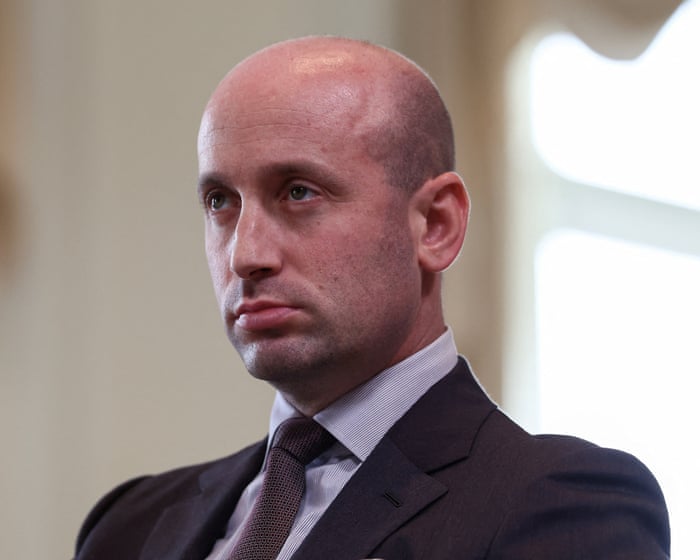Stephen Miller, a senior White House aide, has taken charge in directing U.S. attacks on boats suspected of carrying drugs from Venezuela, according to three sources with knowledge of the matter. His involvement has at times overshadowed that of Secretary of State and National Security Adviser Marco Rubio. These strikes, which the administration defends as necessary due to failed interdiction efforts, are coordinated through the Homeland Security Council (HSC), which Miller leads as Homeland Security Adviser.
Earlier this year, Miller elevated the HSC to operate independently in Donald Trump’s second term, a shift from past administrations where it was part of the National Security Council and reported to the National Security Adviser.
As a result, the HSC has taken the lead in targeting Venezuelan vessels, with Miller’s top deputy, Tony Salisbury, and others controlling details about which boats to strike until just before the attacks occur. For example, in the second strike on a Venezuelan boat on September 15, while the White House was notified that the Pentagon had identified the target over four days earlier, many senior officials only learned of the imminent attack hours before it happened.
A White House spokesperson stated that President Trump directed the strikes and oversees all aspects of foreign policy, adding that the entire administration is working together to carry out the president’s orders successfully.
However, Miller’s previously unreported role and his significant influence with the president shed light on why targeting Venezuelan boats became a top priority and why Trump has been willing to use substantial military force in the region. The U.S. military presence includes the Iwo Jima amphibious ready group with 4,500 sailors and the 22nd Marine Expeditionary Unit with 2,200 marines, as previously reported by the Guardian.
Miller’s involvement also raises questions about the legal basis for the strikes, which has been controversial amid claims that they constitute extrajudicial killings in international waters.
Since the start of the Venezuela campaign, White House officials have justified the strikes by citing Trump’s Article II powers, which allow the president to use military force in self-defense in limited situations. The self-defense argument is based on Trump’s designation of Tren de Aragua as a foreign terrorist organization, a move pushed by Miller to justify deporting dozens of Venezuelans earlier this year under the Alien Enemies Act.
The administration alleges that Tren de Aragua has infiltrated the government of Venezuelan President Nicolás Maduro, framing the presence of cartel members in the U.S. as a “predatory incursion” by a foreign nation, thereby permitting the deportation of any Venezuelan national.
Miller recently told reporters at the White House that Venezuela is run by a drug cartel, not a government, and characterized Maduro as its leader. However, the administration has not provided concrete evidence to support the claim that Tren de Aragua has infiltrated Maduro’s regime.The White House needed to prove that Tren de Aragua was acting as an extension of the Venezuelan government to legally justify the strikes, according to legal experts. On September 2, a divided panel of judges at the U.S. Court of Appeals for the Fifth Circuit ruled that deportations under the Alien Enemies Act were illegal because the administration failed to meet the high standard of demonstrating this connection.
It is still unknown who authorized the legal basis for the strikes. Since the White House began restructuring the National Security Council in May, neither the Homeland Security Council nor the NSC have had dedicated legal advisors as in past administrations. However, several sources indicated that approval came from the Pentagon’s general counsel, Earl Matthews—a former Trump White House attorney—along with the Justice Department and the White House counsel’s office, which includes a lawyer responsible for NSC issues.
Frequently Asked Questions
Of course Here is a list of FAQs about Stephen Millers role in military strikes targeting suspected Venezuelan drug vessels with clear and concise answers
General BeginnerLevel Questions
1 Who is Stephen Miller
Stephen Miller is a senior advisor to former President Donald Trump He was one of the main architects of the administrations immigration and national security policies
2 What is his connection to military strikes on drug vessels
As a key policy advisor Miller was reportedly a strong advocate within the White House for taking a hardline approach against drug trafficking including authorizing the US military to intercept suspected drug ships from Venezuela
3 Why is the US targeting drug vessels from Venezuela
The US government views the Venezuelan government as complicit in international drug trafficking The goal is to disrupt the flow of narcotics primarily cocaine before it reaches the United States
4 Is this legal for the US military to do
The US government operates under legal authorities that allow it to interdict suspected drug trafficking vessels in international waters This is based on US law and international agreements though the specific actions can be legally and politically contentious
5 What kind of military strikes are we talking about
This typically refers to interdiction operations This can range from a Navy or Coast Guard ship boarding and seizing a vessel to more forceful actions like disabling a boats engine or in extreme cases destroying it if it is deemed a threat
Advanced Detailed Questions
6 What was Stephen Millers specific role in pushing for these actions
Reports indicate Miller was a central figure in internal debates arguing for a more aggressive military response He helped shape the policy and advocated for the deployment of Navy ships to the Caribbean and Eastern Pacific to carry out these interdictions
7 How does this policy differ from previous antidrug efforts
This policy represented a significant escalation by directly involving the US Navy in a more overt and forceful manner near Venezuela moving beyond traditional law enforcement and Coast Guardled efforts
8 What are the main criticisms or risks of this strategy
Escalation It risks a military confrontation with Venezuela or its allies
Sovereignty Venezuela and other nations view it as a violation of their sovereignty even in international waters



